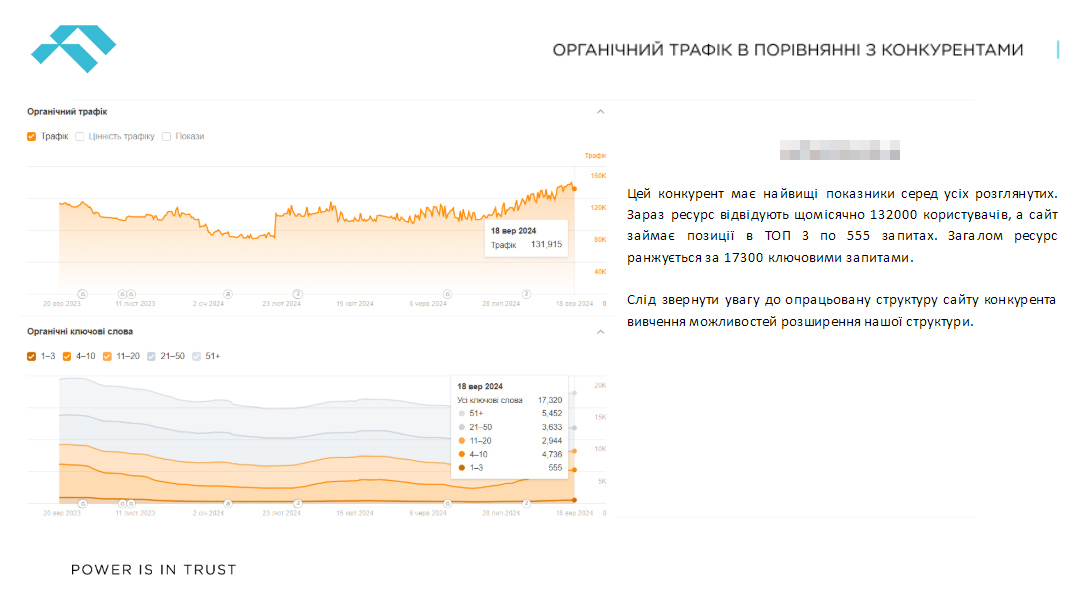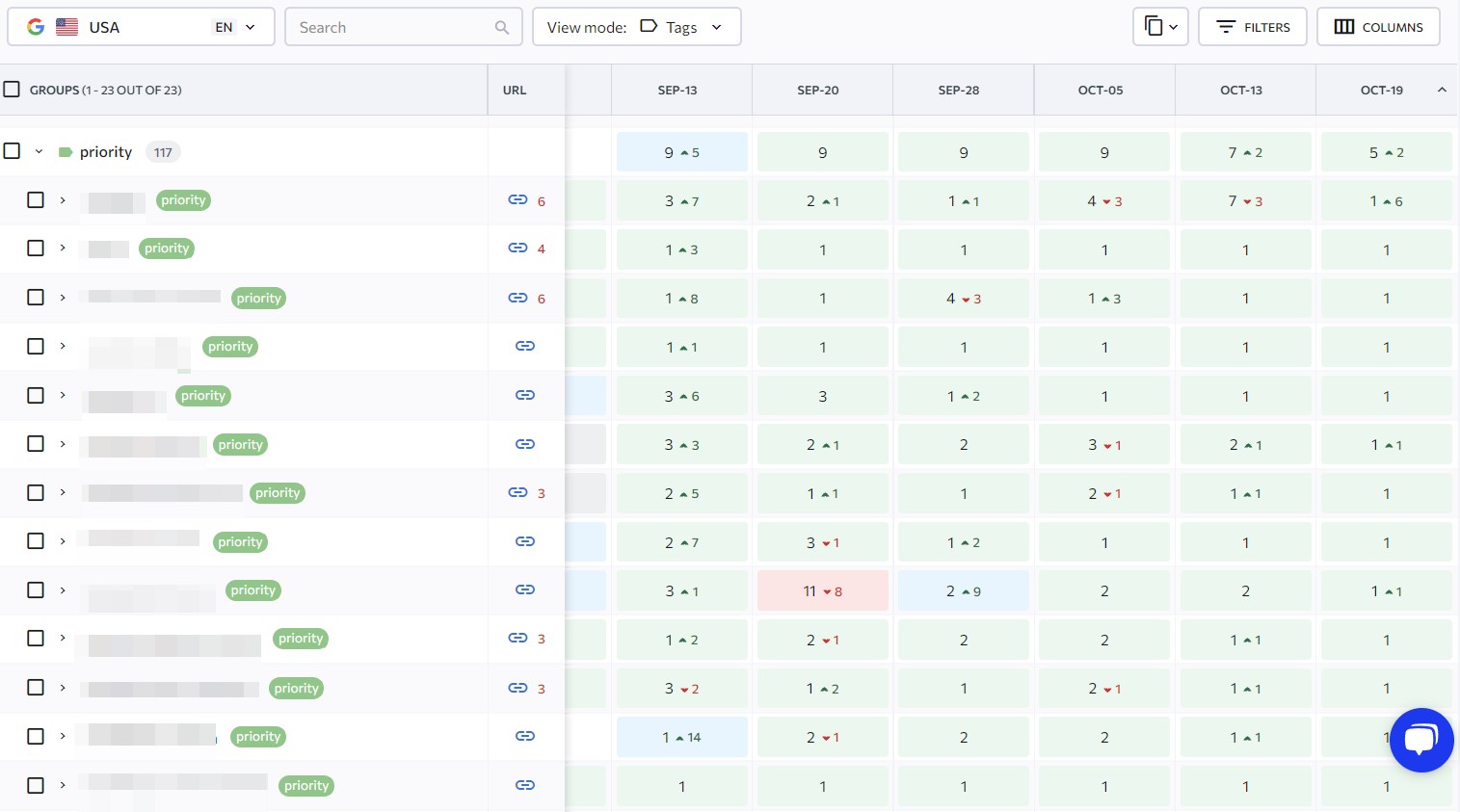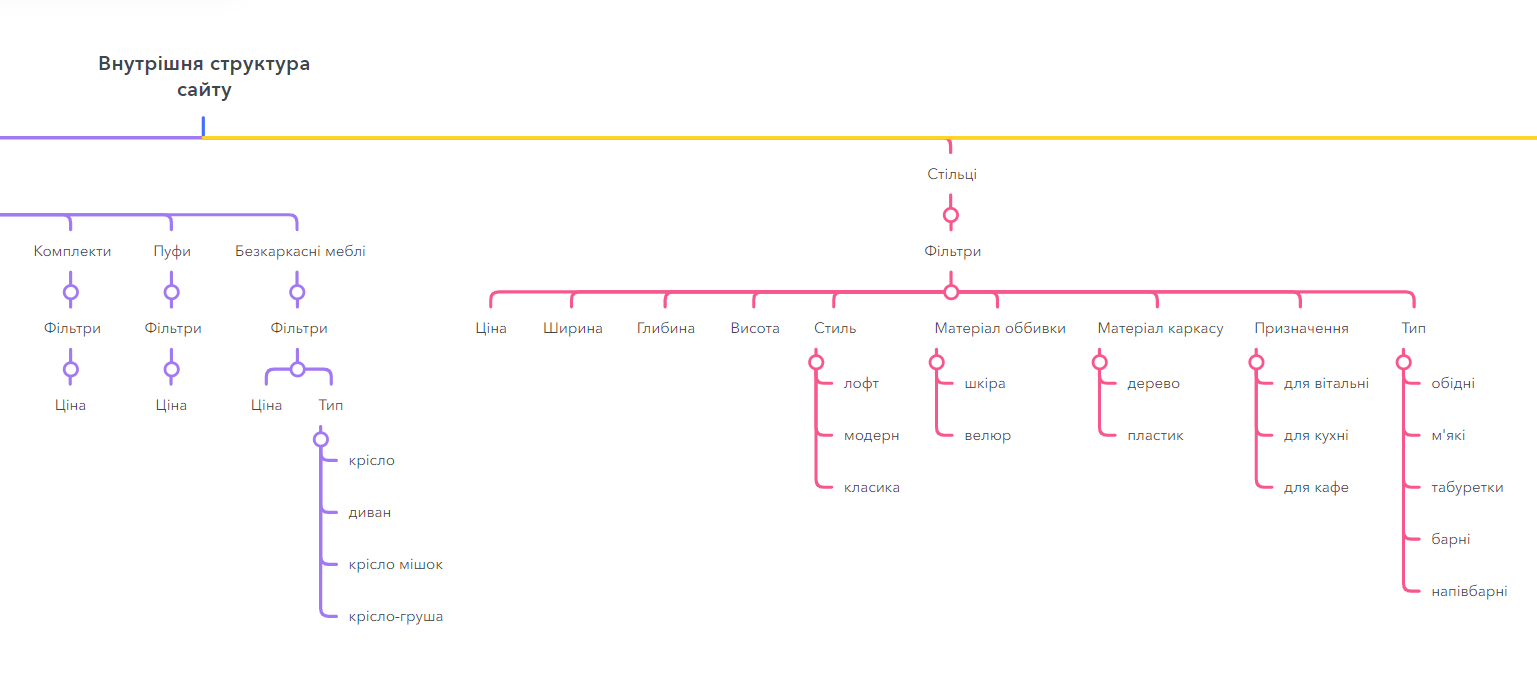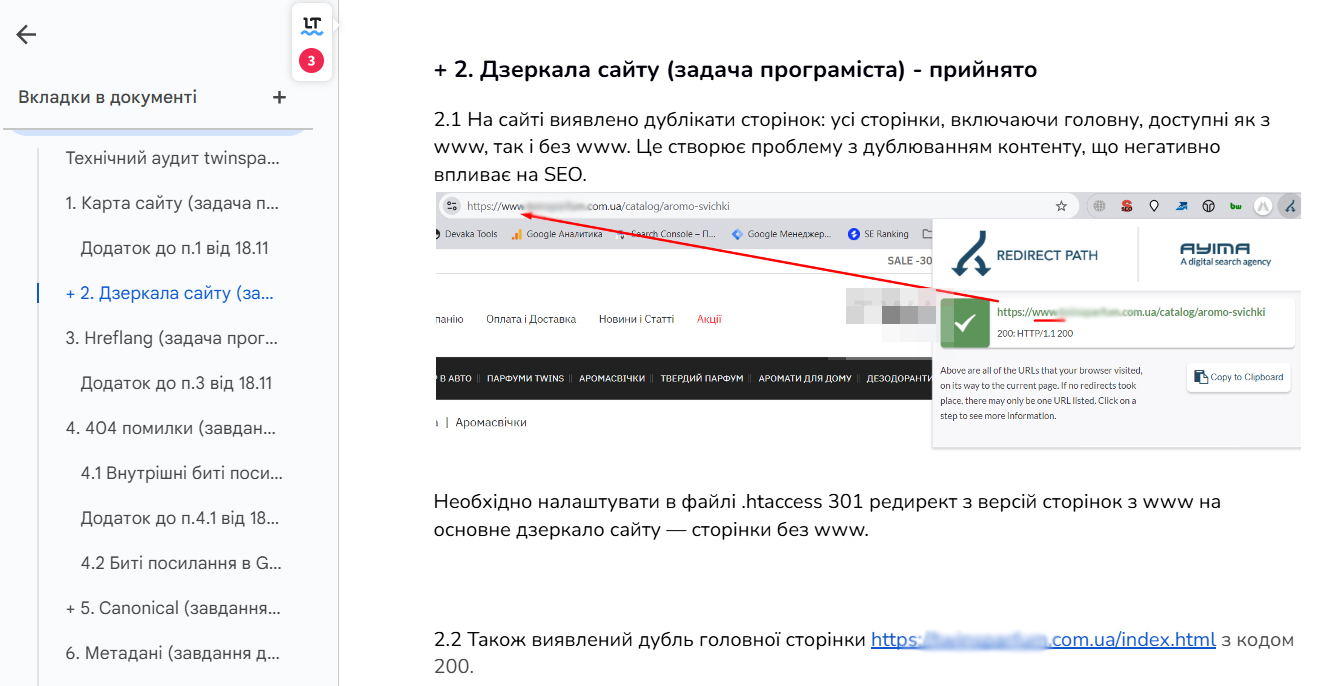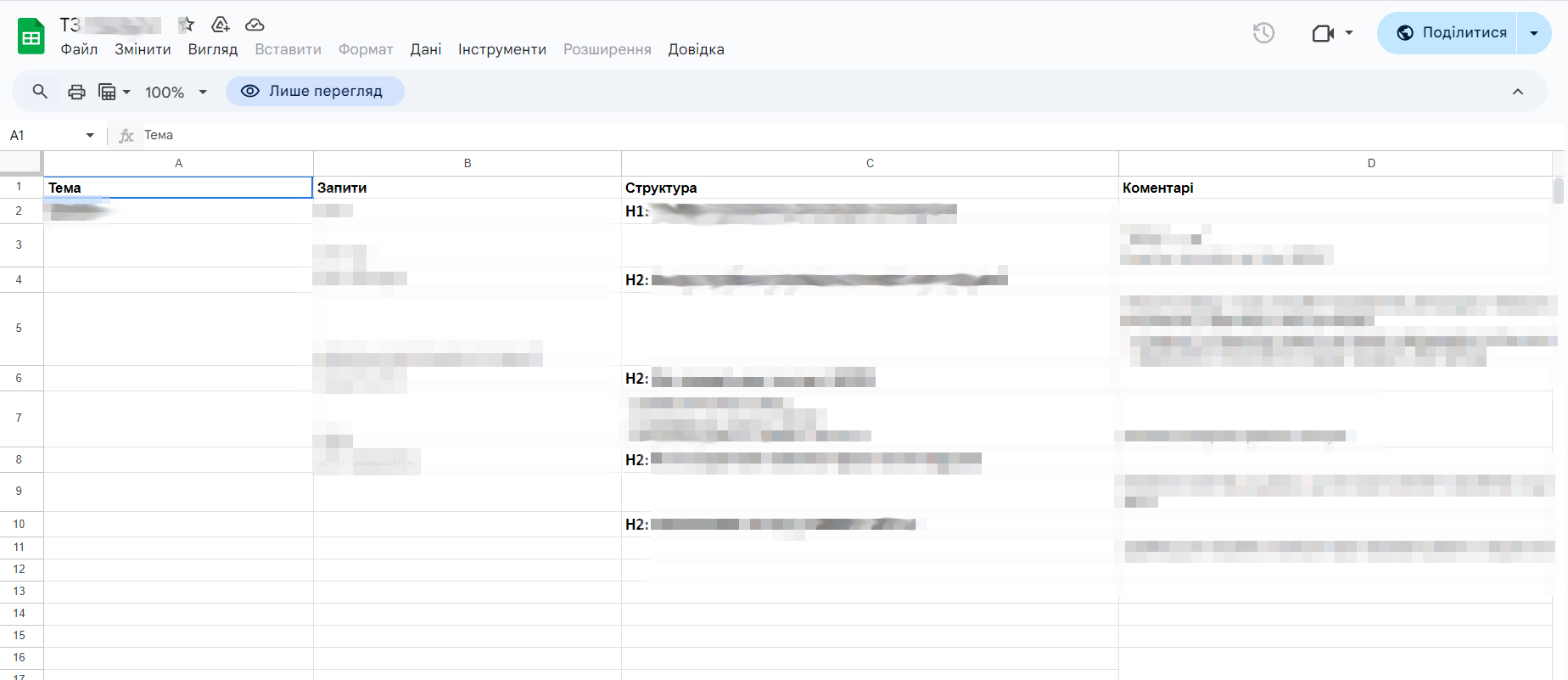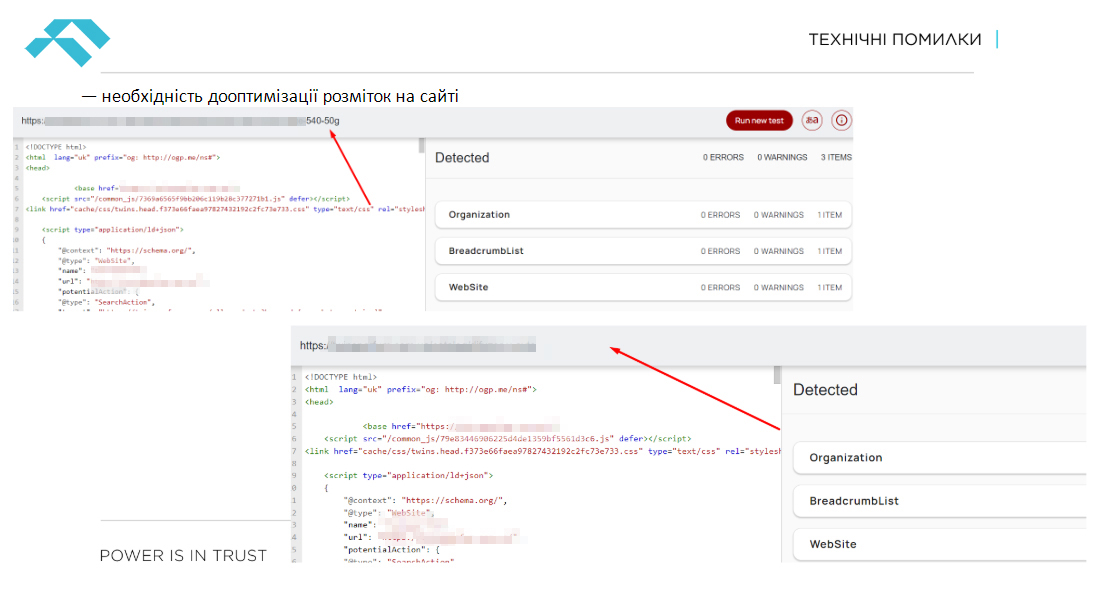We focus resources on categories and products with the highest user and search potential. Understanding demand allows for optimal budget allocation when promoting a new website. This approach ensures maximum return on investment and improves the overall effectiveness of SEO. The SEO optimization process involves in-depth keyword research and analysis of user behavior, enabling us to understand audience needs better and create content that closely aligns with their expectations. A website optimized for SEO is easier to scale — adding new pages and expanding the site’s topic coverage happens more organically and requires less effort.
Properly implemented internal and external linking helps search engine crawlers index your website more effectively. On a user-friendly site, visitors stay longer, and valuable content encourages them to explore more pages — improving the site’s behavioral metrics. A web project optimized from the start is indexed faster by search engines and achieves higher rankings in search results. Taking SEO requirements into account for a new website ensures a stable flow of organic traffic and increases the site’s online visibility. The brand gains recognition, and the number of targeted actions on the site grows.
SEO optimization during the development stage is a long-term investment in your business. Properly structured meta tags, headings, and descriptions increase page relevance for search engines. A site developed with SEO in mind helps avoid costly technical fixes and significantly reduces expenses for future promotion. A website that is user-friendly and search engine optimized achieves a higher conversion rate, allowing you to use your advertising budget more efficiently.
Website creation and promotion involve an in-depth analysis of the competitive landscape, including market saturation, competitor product ranges, promotional strategies, and positioning. We assess the demand level for products or services in your niche and identify growth opportunities and unique selling points that can differentiate your business.
We examine top-ranking websites in search results, reviewing their structure, content, loading speed, and overall user experience. We also analyze competitors’ link-building strategies, including the types of backlinks and their sources. This helps us identify effective promotional tactics used by others and develop the best plan tailored to your website.
We gather initial information from the client about the product range, a list of priority categories for promotion, and, if available, data on competitor products. We identify relevant keywords, assessing their search volume, difficulty, and variations to compile the most accurate and relevant semantic core. Based on this, we form semantic clusters to structure the website in a way that reflects key categories and logically organizes the content.
Based on competitor analysis and the collected semantic core, we develop a logical and user-friendly website structure that is easy to navigate for both users and search engine crawlers. We focus on page hierarchy, depth, and keyword complexity. The structure includes a clear separation of main categories, subcategories, and target pages to enhance user experience and increase the site’s visibility in search engines. We also build and align the filtering system on the website.
The technical task includes a list of actions for optimizing key website elements such as headings, descriptions, meta tags, human-readable URLs, loading speed, mobile responsiveness, and more. Optimizing these essential components helps ensure a positive user experience and improves the website’s position in search engine results.
The developer implements the provided on-page optimization recommendations on a test domain. We carefully verify the execution of the technical task on the test site, including blocking the site from indexing during the development phase and ensuring all recommendations are appropriately applied. This approach helps prevent errors and ensures full compliance with search engine requirements before the site goes live, thereby guaranteeing optimal performance.
Based on the collected and approved semantic core, we create a technical task for developing relevant content. We define the target keywords, text structure, length, and requirements for style and tone. As a result, the content is both valuable and engaging, making it easy for both users and search engines to read. Each text is carefully optimized for keywords and adapted for use across various promotion channels.
We monitor and adjust the website migration process to the main domain as needed. Throughout all stages of website development, we pay special attention to testing and refining every element. We track the implementation of the technical task recommendations, verify the accuracy and completeness of changes, and test all updates. If necessary, we provide additional revisions to maximize optimization results and give the web project the best possible chance of ranking higher from the moment of launch.
